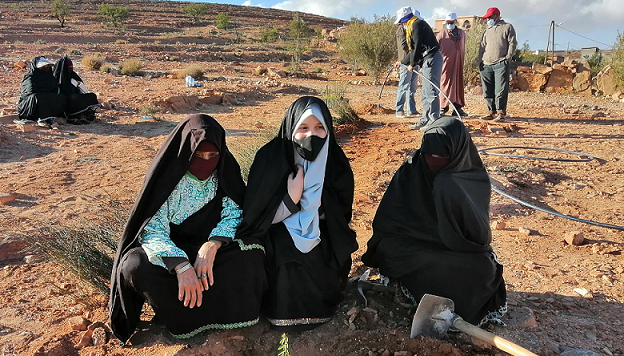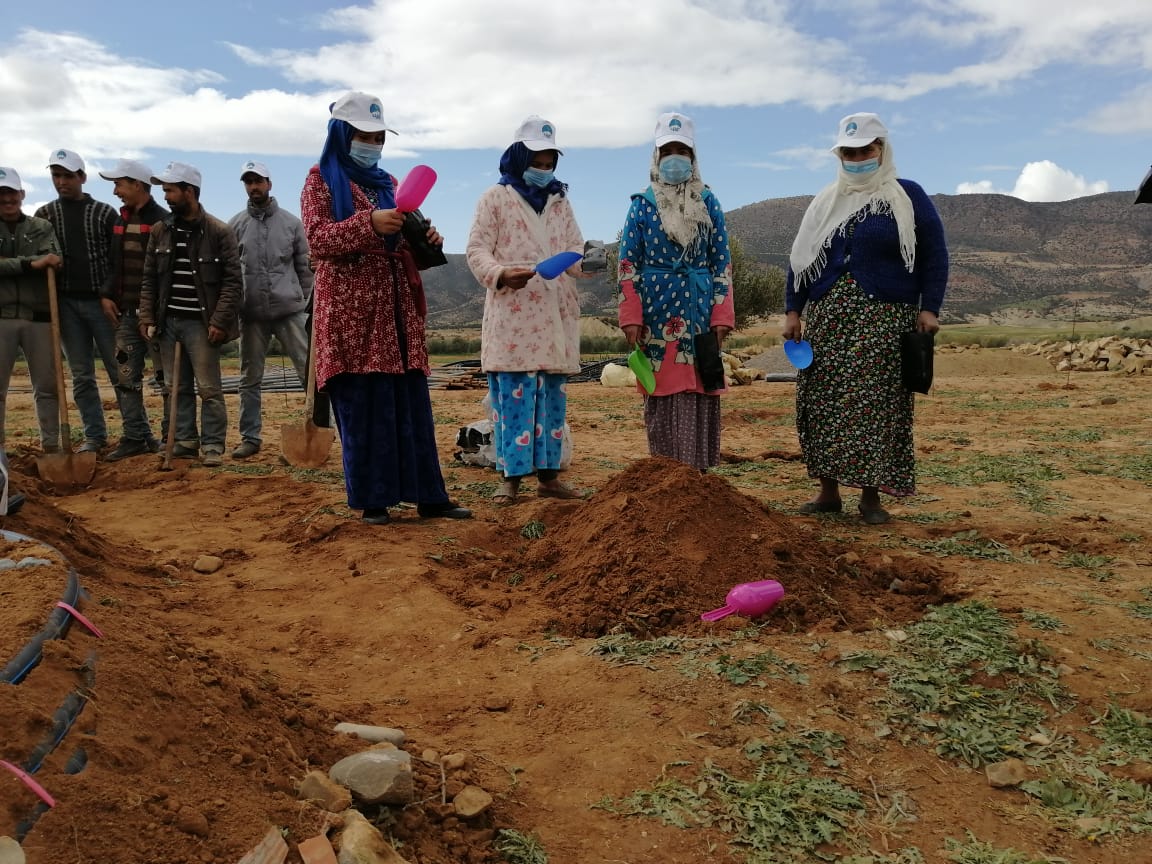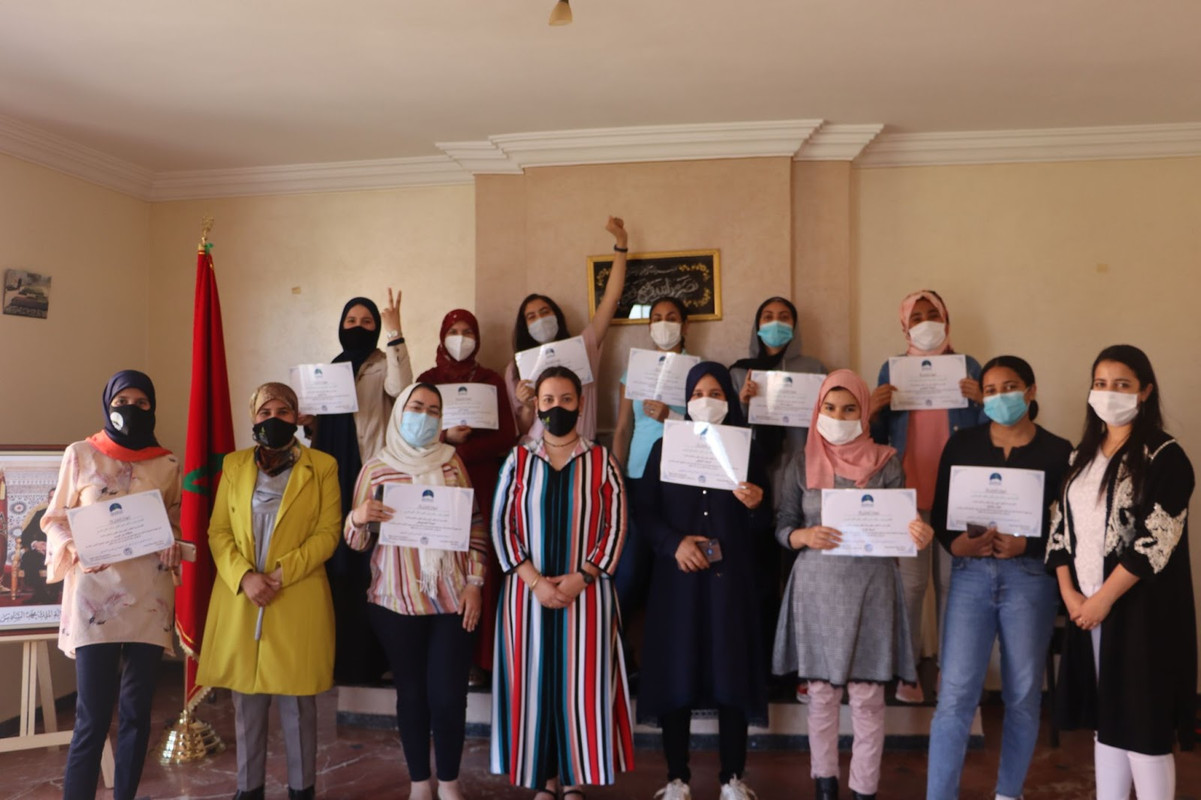Generally, self-empowerment is referred to as the process which leads people to exert greater control over their lives. It is about believing in oneself, setting goals, and making positive choices. That is to say, having to understand our strengths and weaknesses and having belief in ourselves.
This view of self-empowerment was at the core of Imagine workshop‘s goals and objectives. The purpose of the workshop, which was held from May 4 to May 7, 2021, and dedicated to student beneficiaries from Cadi Ayyad University, was to enable young women to take initiative in changing the way they see themselves and the world around them. It was also highlighted throughout the workshop that the first and foremost key element of self-empowerment is to have a vision and to work towards achieving it.
The four-day training focused on seven key areas (emotions, relationships, sexuality, body, money, work, and religion). Each of these areas was discussed at a round table, allowing the participants to share their ideas, thoughts, and experiences. Given the different perspectives everyone has about self-empowerment, its meaning remains common. Among the pillars that make self-empowerment what it is, the participants mentioned:
– self-reliance;
– decision-making;
– the ability to identify one’s strengths and weaknesses;
– self- actualization;
– self-awareness;
– self-esteem;
– trusting the process of development; and
– overcoming fears.
The workshop included both theoretical knowledge and practical exercises to concretize and put into practice each and every aspect learned about self-empowerment. Practices were in the form of self-introspection sessions which allowed the participants to observe and examine their own conscious thoughts and feelings.
Participants were asked four main questions in order for them to locate themselves in relation to their visions. These questions were: Where am I now in relation to my vision? Where do I want to get? What is my limiting belief? Am I convinced?
The training offered an opportunity to open up and talk with ease about the things that weigh us down and hinder our personal and professional growth. The participants together identified their different limiting beliefs and how to overcome them.
Generally, the blocking beliefs are either intrinsic or extrinsic. On the one hand, intrinsic beliefs usually come from within. That is, thoughts we build and believe about ourselves which happen to be wrong most of the time. On the other hand, extrinsic ones are social constructs and stereotypes we get from outside of ourselves (i.e., from society, friends, family, and relatives) and which set a social model by which people socially behave.
The four-day journey definitely left a positive impact on the young women and how they see themselves. What attests to this are the testimonials they provided and how they came to talk about their future projects by the end of the workshop. The confidence and the sense of initiative they manifested proves a reassuring present and a promising future of self-actualization and self-determination.





